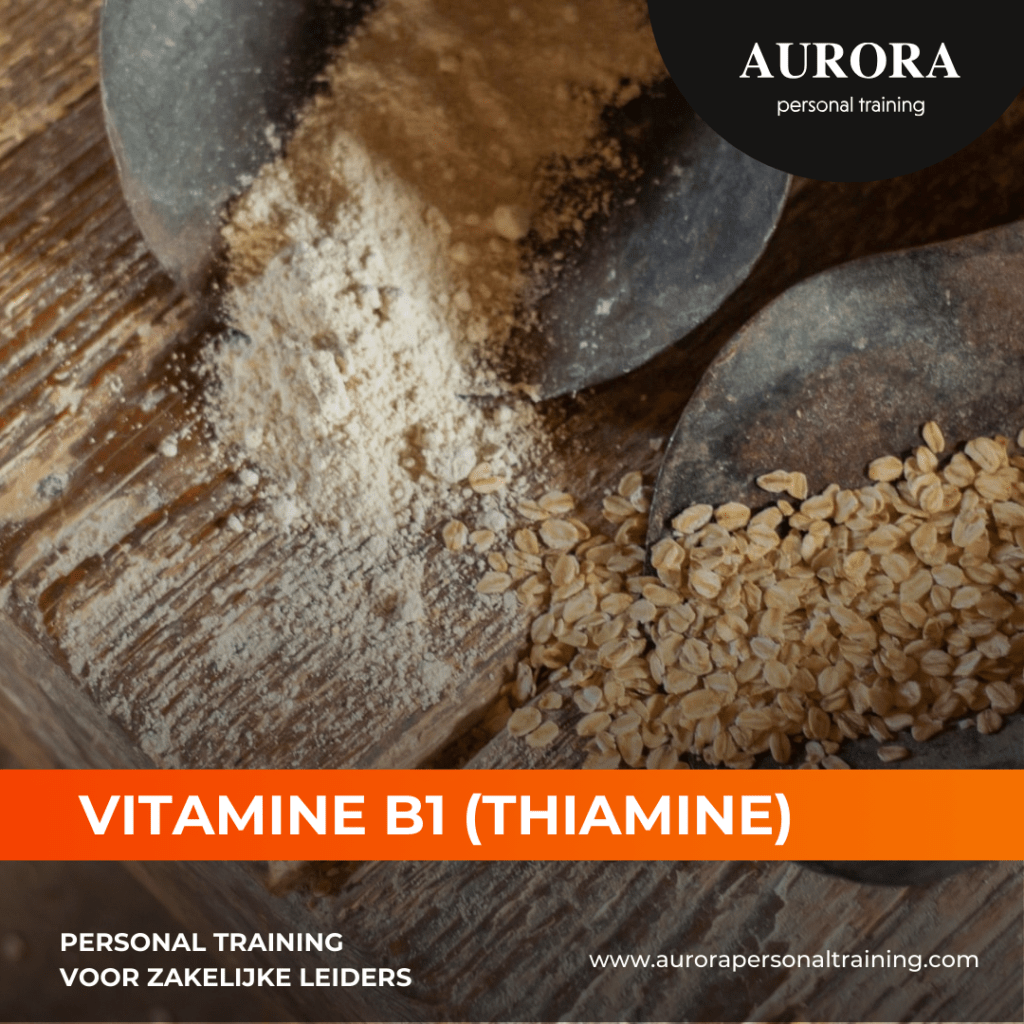The importance of Vitamin B1
Discover the importance of thiamine (vitamin B1) in supporting your body in optimal condition. Thiamine is indispensable for energy supply, the health of the cardiac muscle and the nervous system. Discover below why it is crucial to get enough vitamin B1 and how you can easily achieve this.
Important functions of vitamin B1:
- Collagen formation for radiant skin:
- Vitamin B1 is essential for the production of collagen, which contributes to the firmness and elasticity of the skin.
- Energy metabolism for vitality:
- Thiamine plays a key role in releasing energy from carbohydrates, supporting your vitality.
- Nervous system and brain function:
- Vitamin B1 in the cell walls of nerve cords is vital for transmitting nerve impulses, which supports brain function and overall nerve health.
Where can you find vitamin B1 in food:
- Vitamin B1 is found in whole grain products, potatoes, vegetables, meat and milk.
- Please note: Food preparation can affect vitamin B1 levels. For example, white rice contains only a fraction of vitamin B1 compared to whole grain rice.
Possible causes of Vitamin B1 deficiencies:
- Excessive alcohol consumption: can complicate the absorption of vitamin B1.
- Taking the pill: increases the need for vitamin B1.
- Increased need: during intense physical exertion, stress, thyroid disorders, etc.
- Food choices: white sugar, white flour, and white rice are often low in vitamin B1.
Dietary sources of vitamin B1:
- Brewer's yeast: 10g contains 1,20 mg
- Pork chop: 100g contains 0,85 mg
- Oat flour: 100g contains 0,65 mg
- Sunflower seeds: 30g contains 0,60 mg
- Wheat germ: 30g contains 0,45 mg
- Potato (medium): 0,24 mg
Uses of Vitamin B1:
- Physical exercise: Extra vitamin B1 can improve performance during strenuous exercise.
- Fatigue: Supplementation can reduce fatigue, especially in pregnant women, pill users, young people, diabetics and the chronically ill.
- Resistance: Vitamin B1 strengthens the immune system, especially in combination with the vitamin B complex.
Consequences of a disturbed vitamin B1 balance:
- Anemia
- Difficulty concentrating, confused behaviour, headache
- Palpitations, low blood pressure, shortness of breath
- Fatigue, poor wound healing
- Muscle weakness
Recommended daily amount of thiamine:
- Men: 1,1 mg
- Women: 1,1 mg
